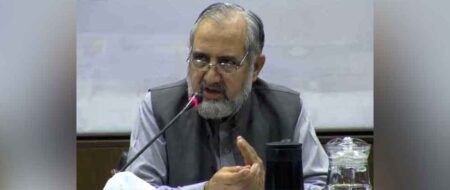15 Years of 9/11 and War on Terror: Pakistan-Impact and Future Approaches
Creative Instability” in the region is US designed
US is not interested in stabilizing Afghanistan or the region; rather it is promoting “creative instability” in the Middle East and South Asia as a design to serve its own interests and those of Israel and India, claimed M. Akram Zaki, former secretary general foreign affairs, in his concluding remarks at a conference held at Institute of Policy Studies on September 29, 2016. He also quoted Zbigniew Brzenizski’s (called as the man behind Obama’s policies) words, “it is easier to kill a million people than to control them” while describing the hubristic policies of the US post-9/11.
 The academic event titled “15 Years of 9/11 & War on Terror” was addressed by Lt. Gen (retd) Asad Durrani, former DG-ISI and Ambassador (retd) Zameer Akram and was moderated by IPS associate Air Commodore (retd) Khalid Iqbal.
The academic event titled “15 Years of 9/11 & War on Terror” was addressed by Lt. Gen (retd) Asad Durrani, former DG-ISI and Ambassador (retd) Zameer Akram and was moderated by IPS associate Air Commodore (retd) Khalid Iqbal.
The speakers were of the opinion that General Musharraf was forced to comply with US demands vis-à-vis the military action in Afghanistan due India’s offer to provide bases to NATO for the same and to counter its maneuvering to portray Pakistan as an unreliable ally of the US and a supporter of terrorism.
Ambassador Akram who was privy to the deal with the US in this regard informed that Pakistan realized at that time that Taliban regime will not be able to survive the military action led by US and had given assurance to the US that it will support its fight against Al-Qaeda but not the Taliban. Also, it was advised to the US that it should refrain from dealing with the Afghan warlords who were responsible for creating all the mess in their country and also the new leadership in Afghanistan should be developed in accordance to the Afghan traditions. Unfortunately, all three points suggested by Pakistan fell on deaf ears, he added.
He said that because of flawed US policies Taliban are still thriving and their dependence on Pakistan has decreased to the extent that the latter cannot exercise any influence on them for the peace process anymore.
He lamented that there was no forward-looking, futuristic policy planning being done at the foreign office in Pakistan. He also said that we were not candid enough with ourselves and also with our interlocutors. “When we are talking with the Indians or Americans we should tell them what is possible and what is not”, he remarked. He also criticized the inconsistent approach of the foreign affairs ministry citing various examples.
General Durrani was of the view that there was no need for Pakistan to engage its army in FATA and misadventures like Lal Masjid operation which led to the spread of the war inside the country faster than a jungle fire. He said this policy of Musharraf gave birth to the phenomena of suicide bombings in Pakistan.
He, however, admitted that the initial decision of Musharraf to support the US invasion of Afghanistan was a pragmatic one.
The speakers also underscored the need for a proactive foreign policy and called for a befitting response to the warmongering of Indian Prime Minister Narendra Modi and the declared efforts to isolate Pakistan. They said that India needs to be told clearly that it cannot pursue such aggressive policies against a nuclear armed neighboring state.












